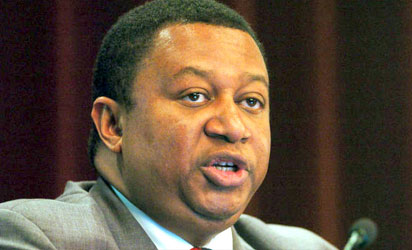The Organisation of Petroleum Exporting Countries (OPEC) yesterday reported that Nigeria’s oil reserves dropped by 543 million barrels in five years as investments in the nation’s hydrocarbon resources continue to decline in recent years.
The oil cartel gave this hint in its 2021 Annual Statistical Bulletin, which reflects proven oil reserves by country globally.
Specifically, the bulletin indicated that Nigeria’s oil reserves dropped from 37,453 million barrels in 2016 to 36,910 million barrels in 2020.
Further analysis of the latest OPEC’s report reflected that Nigeria’s oil reserves stood at 37,453 million barrels in 2017, dropped to 36,972 million barrels in 2018 and further dipped to 36,890 million barrels in 2019.
According to the OPEC, the country’s active oil rigs during the five-year period covered in the bulletin increased from nine in 2016 to 49 in 2020, with active crude oil rigs in 2017, 2018 and 2019 being 13, 32 and 17 respectively.
The bulletin indicated that the number of oil wells that were completed in Nigeria increased from 76 in 2016 to 81 in 2020 and that 76, 81 and 100 oil wells were completed in 2017, 2018 and 2019 respectively.
The report further showed that on daily and cumulative crude oil production, Nigeria’s average daily production of oil in 2020 was 1.486 million barrels with the year’s cumulative production rising to 34.42 billion barrels.
The OPEC stated that while the country’s average crude oil production was 1.43 million barrels per day in 2016, it rose to 1.54mbpd in 2017, 1.6mbpd in 2018; and 1.74mbpd in 2019. However, the organization reported that the country’s average daily oil production decreased to 1.49mbpd in 2020.
Earlier before the OPEC’s publication, precisely in June this year, Minister of State for Petroleum Resources, Chief Timipre Sylva, said that government was initiating measures to raise the country’s average daily production to four million barrels through the operations of the marginal oilfields.
Sylva, who made the disclosure at the 2021 Nigeria International Petroleum Summit in Abuja, called for collaboration among operators to achieve the feat.
The minister pointed out that getting the new set of marginal fields operational was a desirable option towards achieving the country’s target of 4mbpd oil production and 40 billion of proven reserves.
It would be recalled that the Director, Department of Petroleum Resources (DPR), Engr. Sarki Auwalu, had during a workshop last month disclosed that government had set a target of increasing the country’s oil reserves from the 36,910 million (36.91 billion) barrels to 50 billion barrels in the short to medium term.






